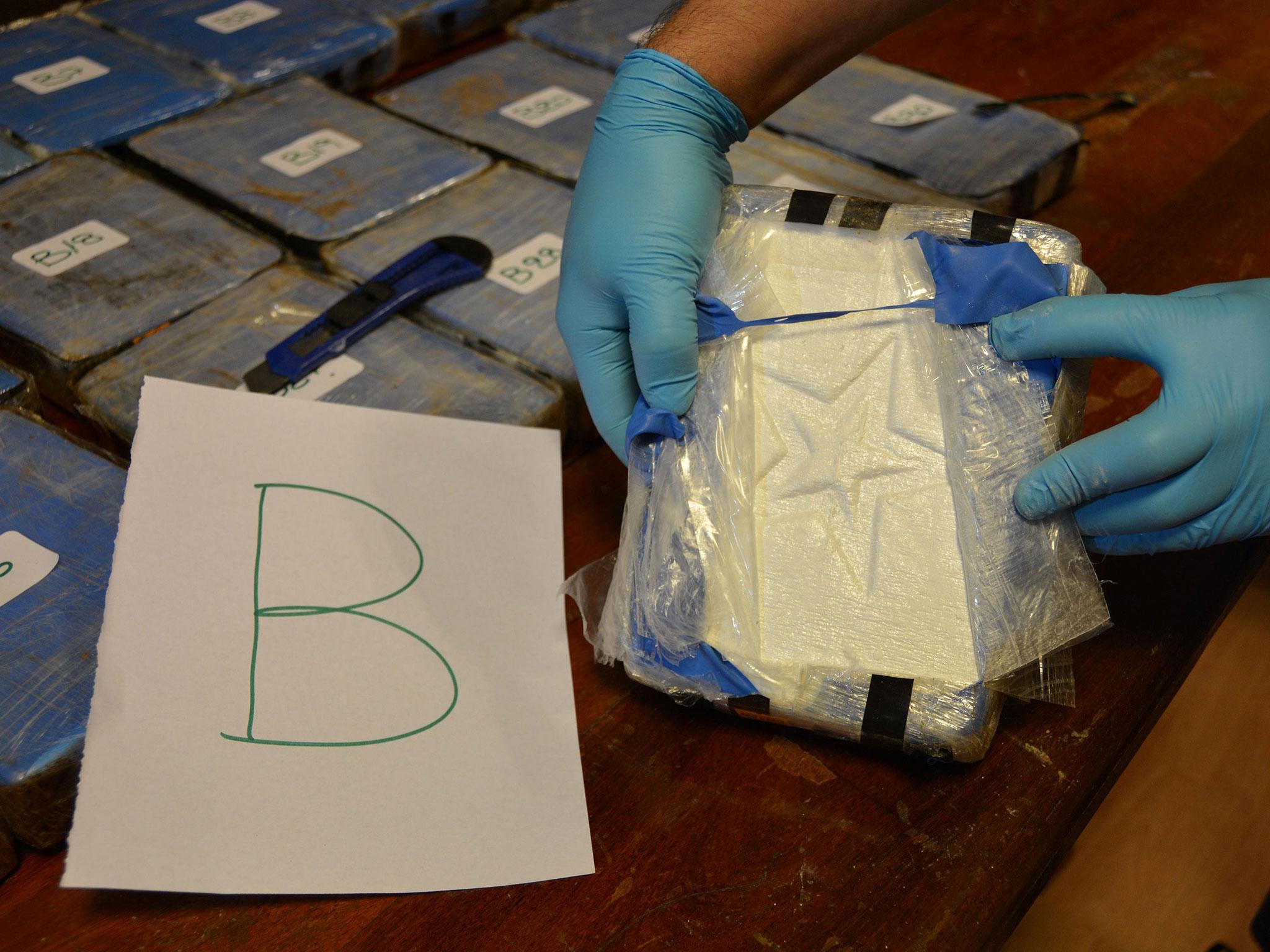Was a Russian government jet used to smuggle cocaine from Argentina?
Argentinian officials say they seized €50m of ‘purest’ cocaine in sting operation, but Moscow denies link to diplomats

Even by South American standards, it was a sting of dramatic proportions. Twelve suitcases and 389 kilograms of cocaine – “the purest in the world”; an organised crime ring; the local Russian embassy; a government plane and a special operation, conducted under the cover of darkness, switching drugs for flour and GPS trackers.
The undisputed facts are thus: around December 2016, cocaine to the value of €50m (£44m) was found in suitcases in a school attached to the Russian embassy in Buenos Aires. A year later, the suitcases arrived in Moscow. Five people were arrested along the way, including two former employees of the Russian embassy, a policeman, and the two men who came to collect the shipment. A sixth man, Senor “K”, has been identified as the leader of the gang.
All of these basic facts, which came to the surface within the last week, have been confirmed by Argentinian authorities and by the Russian ambassador, Victor Koronelli. What is less clear is how the drugs ended up in the school, and the exact involvement of Russian officials before and after the heist.
Since the story was first reported last week, media coverage has produced more questions than it has provided answers.
According to an early version of events, as reported in The Daily Telegraph, the Russian authorities were in on the operation from the start.
On 13 December 2016, so that version goes, Ambassador Koronelli alerted Argentinian security services about the discovery of suspicious suitcases. Russian and Argentinian agents met, hatching a plan to switch the drugs and track the packages to their intended recipient.
Head of the Russian Security Council Nikolai Patrushev even flew in to oversee the operation in December 2017, the paper suggested – and the suitcases flew back on his plane.
The Argentinian Minister for Security, Patricia Bullrich, appeared to officially endorse this version. In a press conference, she said the suitcases were “sent as diplomatic baggage on a Russian government plane”. She also posted a video showing the suitcases being loaded onto the Moscow-bound plane.
That video shows the plane’s registration number as 96023. According to Russianplanes.net, as eagle-eyed journalists noted, such a registration number corresponds to an Ilyushin-96 aircraft registered to the official Russian government airline. The same website also suggested that the plane had been in Buenos Aires on 6 December 2017, before flying on to Moscow via Cape Verde.
By Tuesday morning something strange had happened to the Russianplanes.net website. Its content had been deleted, and in its place was a message from its owner, “Kiba,” announcing he had closed the site voluntarily. “It stressed me out,” he wrote. “I didn’t intend to frame anyone.”
The official Russian reaction has only added to the confusion. The Russian Security Council denied the plane of its head Patrushev had any role in the sting. “This plane is not used for diplomatic mail or cargo.”
A spokesman for the Russian Ministry of Foreign Affairs said that none of its diplomats were implicated in the operation – only technical workers. Official Argentinian images showing a Russian government plane were, the spokesman suggested, no more than doctored fakes.
The spokesman did not, however, provide answers for why members of the alleged criminal gang referred to the first secretary of the embassy by name. Blogger Maxim Mironov, whose children go to the embassy school in Buenos Aires, also said that it was inconceivable the embassy did not know what was going on in the school.
Writing a long post on the LiveJournal site, he noted that the school was guarded around the clock by security service agents.
“I find it hard to believe the official version that they suddenly discovered the bags of cocaine there,” he said.
Join our commenting forum
Join thought-provoking conversations, follow other Independent readers and see their replies
Comments
Bookmark popover
Removed from bookmarks